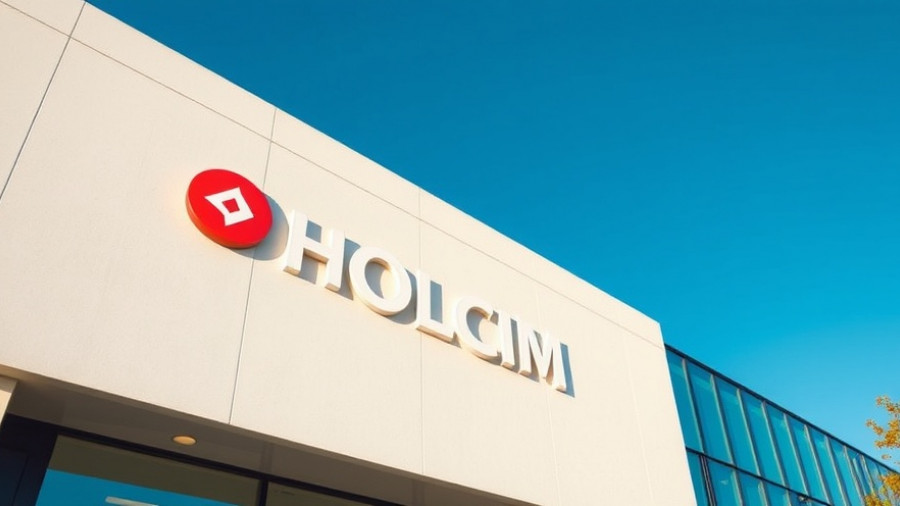
Understanding Holcim's Major Acquisition of Xella
The global cement giant Holcim has recently made headlines with its significant acquisition of German wall systems manufacturer Xella for a staggering $2.16 billion. This strategic move positions Holcim to expand its reach into the burgeoning European refurbishment market, which is expected to see immense growth in the coming years.
Why This Acquisition Matters
With the European refurbishment market estimated at around 250 billion euros annually, Holcim aims to play a crucial role in enhancing the energy efficiency and sustainability of existing buildings. As Holcim’s CEO, Miljan Gutovic, remarked, approximately 80% of buildings currently in use will still be around by 2050. This underscores the importance of continuous investment in refurbishment and repair to meet modern standards.
What Xella Brings to the Table
Xella is renowned for its advanced walling systems, which significantly improve thermal insulation and control sound—a growing necessity as urban populations rise and building regulations become more stringent. Under established brands like Ytong, Silka, and Hebel, Xella is projected to generate around €1 billion in sales this year alone. This acquisition not only enhances Holcim's product offerings but also embraces a more sustainable approach to construction, in line with global demands for eco-friendly practices.
Sustainability as a Driver for Growth
Holcim is increasingly steering its business strategy toward sustainable construction, noting that meeting energy-efficient standards is critical as cities grow denser. The renovation of older buildings for better energy performance is not just an environmental imperative but represents a significant economic opportunity. With Xella in the fold, Holcim expects to leverage its capabilities to address these challenges effectively.
Future Growth and Opportunities
Gutovic hinted at potential further acquisitions, announcing aspirations for further 'big deals' in the near future. This consistent drive towards growth suggests Holcim's dedication to reshaping the construction landscape through innovation. The integration of Xella will likely open avenues for cross-selling opportunities across Holcim’s existing product lines, amplifying market presence and profitability.
The Changing Landscape of Construction
As construction standards evolve, the need for high-quality materials that fit the criteria of energy conservation and noise reduction becomes imperative. The EU's pivot towards tighter regulations means companies like Holcim and Xella are not just positioned for immediate profit—they are set to become leaders in the shift to sustainable construction practices.
Conclusion: Embracing the Future of Construction
The acquisition of Xella represents more than just a financial transaction; it reflects a broader trend in the construction industry where sustainability leads the agenda. For homeowners and contractors alike, it’s essential to recognize the implications of this shift—stronger regulations around building standards could ultimately lead to better quality living environments.
Call to Action: Homeowners and contractors should familiarize themselves with these emerging trends in construction. By understanding how sustainability impacts the market, you can better strategize your investments in home renovations or construction projects.
 Add Row
Add Row  Add
Add 




Write A Comment